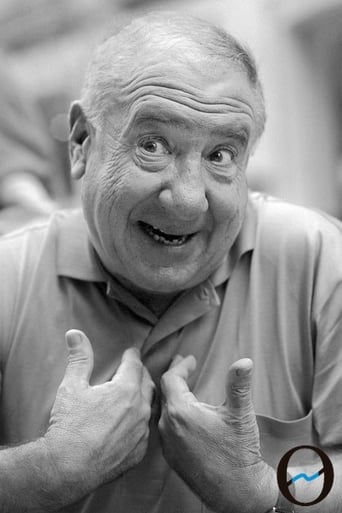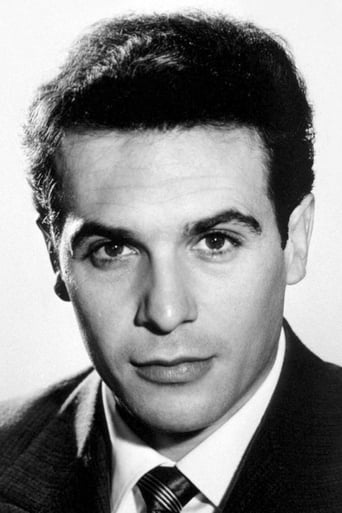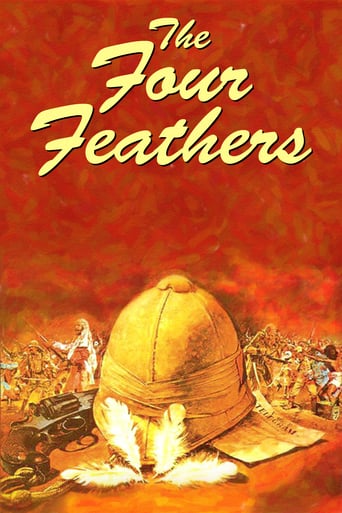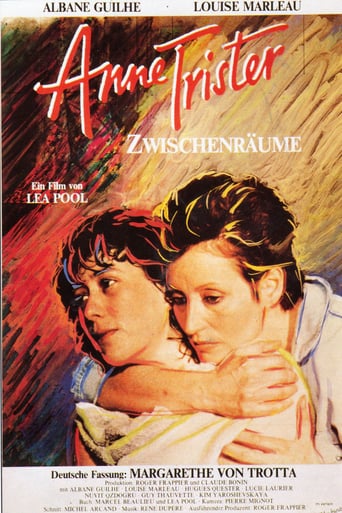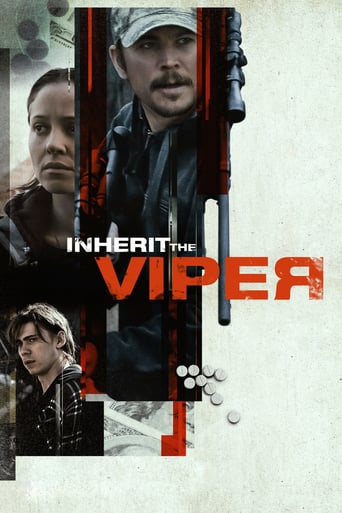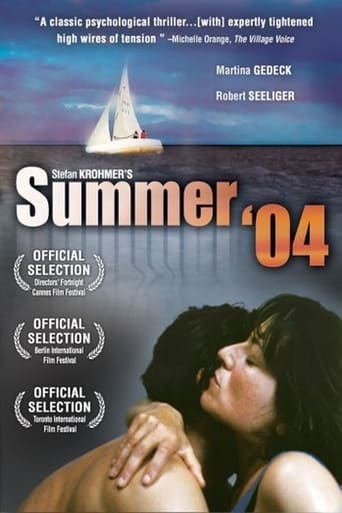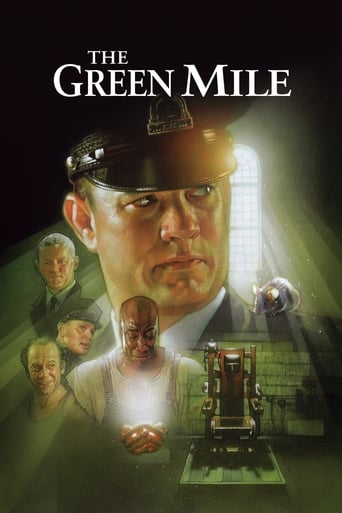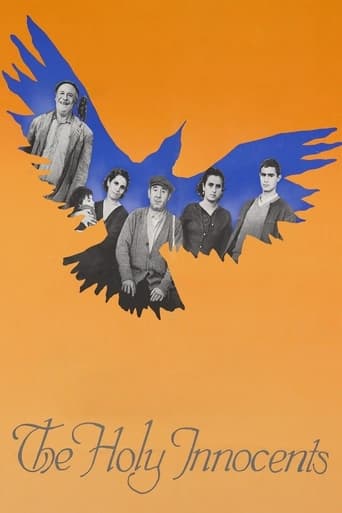
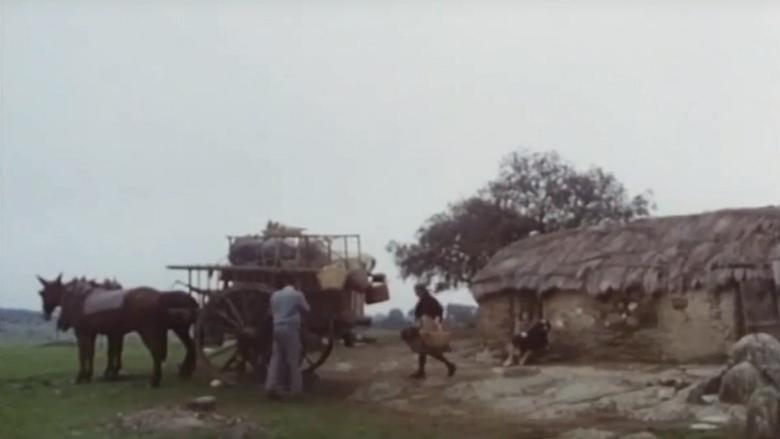
The Holy Innocents (1984)
Somewhere in the spanish country, in the 60s. Paco and his wife Régula are very poor. They work as tenant farmers for a very wealthy landowner. They have 3 children. One is backward. The others can not got to school because the master "needs" their work. When Regula's brother is fired from where he has worked for 61 years, he settles down at their little place... An attack against the archaism of the spanish country of the 60s.
Watch Trailer
Cast


Similar titles
Reviews
Perfect cast and a good story
A waste of 90 minutes of my life
A Disappointing Continuation
I cannot think of one single thing that I would change about this film. The acting is incomparable, the directing deft, and the writing poignantly brilliant.
Having traveled extensively throughout Spain this film evokes memories and images from a long lost Spain and a time which although still exists, now is much diluted. Every aspect of this, at some points sleepy, film are for me very real. The acting is superb, and the filmed scenes carefully and accurately depicted. I have never read the book, but having seen this i will now scout for it. I had no idea the cork oaks were used for such purpose and the pomp and circumstance was also an eye opener/ i gave 7 out of 10,but 10 out of 10 for effort, from both the acting cast and the direction. These places do exists still today, and are still owned by the landed gentry, very much fenced off and off limits to the rest of us as you pass through such regions. I often wonder if they still employ people and treat them the same......
Back to the beginning of the 20th century, the countryside of the Iberian peninsula was controlled by land tenants who enjoyed a set of privileges that would be considered more typical of the middle ages than of modern times. As for example, having enslaved families working on their farms.Now this is obviously an issue that 2 actual European Union countries like Spain and Portugal don't like to be reminded of. Nobody likes to remember that less than 50 years ago this was still a reality. So with time it became a non-issue, an unsponsored reality.What Camus does with this movie is remarkable. Not only by his technique and the end result of this film, but mainly because it gives voice - and more importantly, it gives images - to this hundred of anonymous stories that were never portrayed before with such care.A must see.
This film will shake you to the bottom. It is truly unusual to come across a movie where deep sociological, psychological and historical issues are dealt with so soberly. This movie shows quietly all the horror and brutality of rural (feudal) life in southern Spain during the hard years of the Franco dictatorship. This film, and the novel it is based on (by M. Delibes) pays humble homage to the history of millions who were silently oppressed by the class of rural landowners that supported Franco. Now, what performances by Juan Diego, Alfredo Landa and Paco Rabal. I really recommend it to anyone interested in realist art.
The last twenty five years of Spanish filmography have produced a number of titles which have indulged in sociological themes, mostly using the years of the Franco Régime as a background when not a mere scapegoat. El Sur (Victor Erice)(qv), Las Ratas (Giménez Rico)(qv), Las Bicicletas son para el Verano (Jaime Chávarri) as well as several by the now deceased Pilar Miró, come to mind. But perhaps none reach the powerful endorsement achieved in Los Santos Inocentes, carefully and predictably directed by Mario Camus. Faithfully transferred from the book by Miguel Delibes, also author of Las Ratas, as well as singularly impressive narratives such as Cinco Horas con Mario, a true tour de force in contemporary literature, and the intensely lyrical and moving El Camino, Camus inspired the principal actors - Paco Rabal, Alfredo Landa and Terele Pávez - into producing some memorable scenes.Scenes of illiterate peasants obeying their master, landowner, insensible to everything except his passion for hunting; peasants who were so hugely grateful for the handful of pennies so compassionately handed out by the rich duchess; peasants who grovelled in the filth of their mean shack and could barely write their own names. Spain: about 1962 if the registration number of the big black Mercedes is anything to go by. Spain, in the region called Extremadura, which even today is the poorest part of the country. Spain, governed by a dictator who himself was extremely uncultured. Camus, armed with the simple but sincere exposition in Delibes' novel, manages to show this plight, but without the tremendism so frequent in Spanish books or films; without any soured feelings, but dispassionately, like a surgeon operating for the five hundredth time on gall-stones. The story was there to be told and not sympathized over. Not for the pop-corn eating public, more for the discerning cinema-goer who can give what the film demands: attention to details. The incision is precise, exact, giving greater credibility to this little masterpiece.


